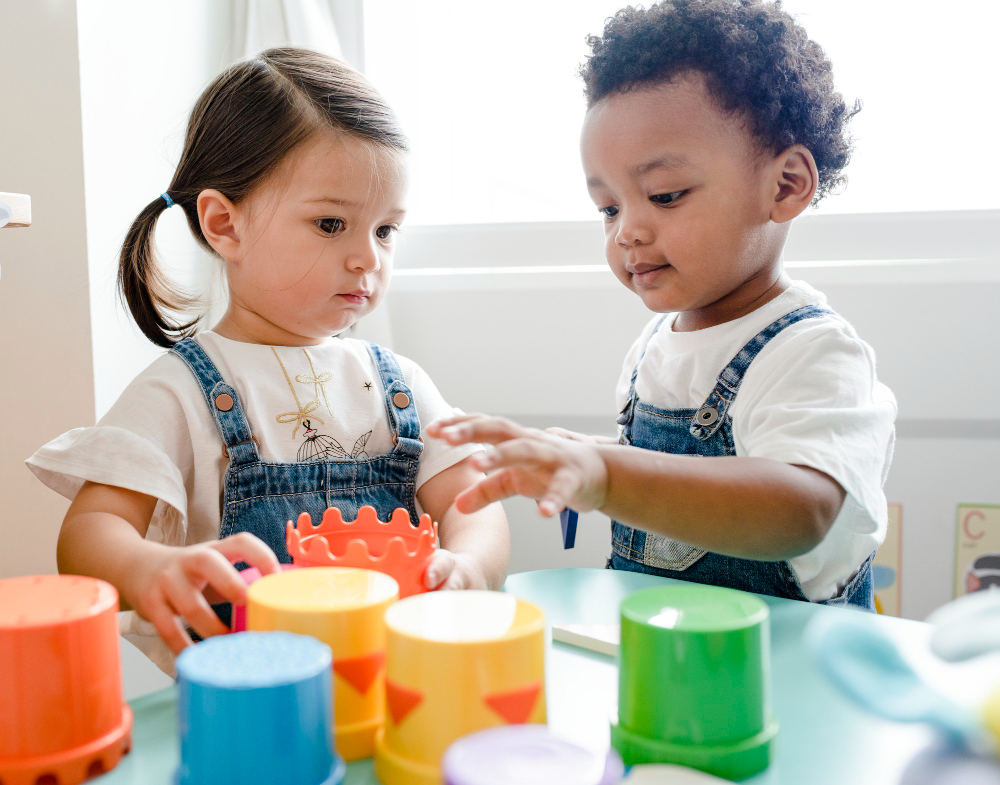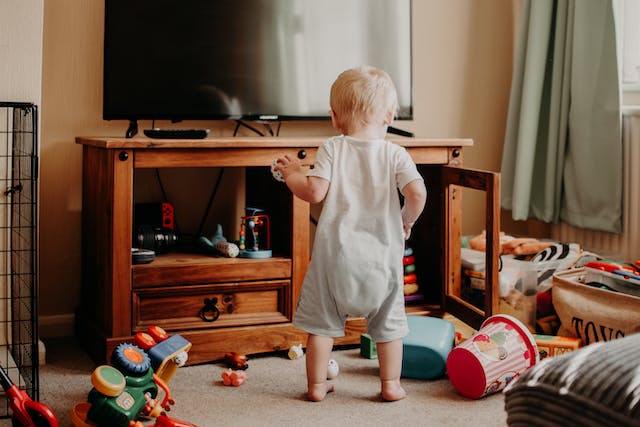Preschool behavior

Question: My son is 4 1/2 years old and he is being disruptive at pre-school. He plays up in quiet time and sometimes hits other children or jumps on them. We have used 123 method at home which works well but he is not generally naughty at home. He is an only child and will start prep school next year 2 days per week. We have started being a lot harder at home with things that did not generally seem a problem at home but at pre-school. Do you think this will help. We are so worried that he will be branded the naughty boy at school. Any suggestions. Diana
Answer: It sounds like your son is a very active boy with lots of energy. It often happens that a school experience will highlight a readiness for increased expectations at home (and vice versa). It is also possible that “being harder” at home will bring about a greater consistency in expectations and, therefore, less disruptiveness. Your son’s behavior can be a signal that he is ready for stricter rules. As a general principle, I suggest giving your son as much responsibility as possible: never do for him things he can do for himself. This may help to constructively channel some of his energies and support his growing independence.
This is also a prime age to actively teach him appropriate social skills: How can he get other children’s attention or be heard without hitting? If he is an active child, he may act first, think later. Teach him to slow down (for just a second) and say first to himself what he’s trying to do. How can he play actively without jumping or wrestling with other children? This is one area where home behavior does affect school behavior. If your son is rough housing with dad, with friends or with cousins, stop the rough housing until he can differentiate the boundaries better.
How can he “read” social situations better? Teach your son to observe children playing to determine how and when to join in. Teach him to watch children’s faces and bodies to know if they are having fun or being annoyed. Teach him to listen to the words and the ideas of other children.
Social skills should be consciously taught and consciously reinforced. You may even plan some weekend play dates where your son can practice his new social skills with a smaller number of children and with your watchful (but casual) supervision.
I would also talk to the school about acceptable activities to do during “quiet time”. Not all 4 and 5 year olds require naps and your son may need to be redirected to appropriate quiet activities like reading or drawing. The 1-2-3 Magic Method should be successful if the behavior is motivated by attention-getting. You can show support for the school’s efforts and praise your son’s successes.
Schools are partnerships. With good communication and mutual problem solving, there should be no need for counter-productive labeling. On the rare chance that there is a serious mismatch between your parenting style and a school’s over-emphasis on compliant behavior, you may need to explore other school choices. This is never an action to be taken lightly – children are not well-served by frequent moves nor should they be given too much leeway not to comply with rules. But, at the same time, many children do not thrive in overly academic environments with excessive seat work. We know from Howard Gardner’s work at Harvard’s Project Zero that there are multiple forms of intelligence and a variety of classroom settings that meet children’s needs. These should be exciting and positive times when your son can explore and expand his curiosity while learning simple parameters of cooperation and consideration.
Good Luck,
Karen Deerwester, Ed.S.





Follow Us
Join the conversion. Make sure to follow us on our social platforms for the latest content and FamilyTime news.